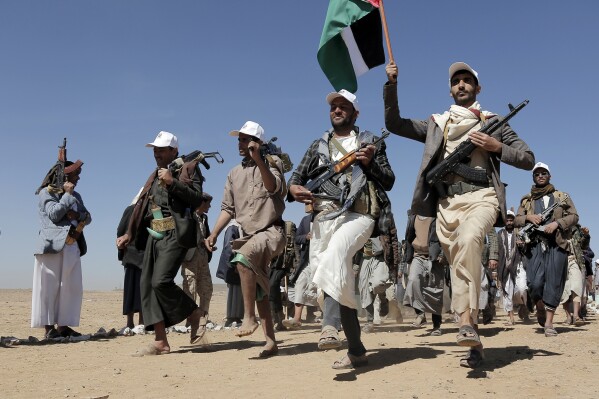Russian Troops Drinking from 'Stagnant Puddles' amid Water Shortage: UK
Russian forces are drinking from "stagnant puddles" as water shortages plague Moscow's troops in Ukraine, according to the U.K. government.
"In response to water shortages some Russian military units have been forced to improvise filtration attempts, using stagnant puddles for daily water requirements," said the Ministry of Defence Tuesday.
Vladimir Putin's soldiers, now nearly two and a half years into the war effort, are likely experiencing spikes in waterborne diseases, dehydration, the U.K. government added in an intelligence update posted to social media. This will "almost certainly impact morale and operational effectiveness," the ministry assessed.
Newsweek has reached out to the Russian Defense Ministry for comment via email.
The Kremlin has carried out a campaign of targeted strikes on Ukraine's critical infrastructure, which includes facilities providing water across the country. Throughout the war, areas of Ukraine have struggled to maintain access to clean water.
Damage from Russian attacks on infrastructure "is now almost certainly curtailing water supply," the U.K. evaluated.
Ukraine is also in the midst of a fierce summer season, with temperatures soaring in recent weeks.
This comes as Russia plugs away with its grinding advances in eastern Ukraine, battling away along the border with Ukraine's northeastern Kharkiv region as it struggles to contain Kyiv's surprise incursion into the Kursk region.
A week into the cross-border offensive, Russian authorities have insisted they have the situation under control, while Kyiv said its forces control 1,000 square kilometers, or just under 400 square miles, of Kursk. The U.S.-based think tank, the Institute for the Study of War (ISW) said on Monday that it does not believe Ukraine currently controls all of the territory included in claims of its advances.
Reports have suggested that Russian pilots receive around a quarter of their minimum recommended water consumption for these types of sweltering conditions each day, and have started appealing to local residents for water, the British government noted.
In mid-June 2023, the destruction of the Nova Kakhovka dam—for which Moscow pointed the finger at Kyiv, and Ukraine blamed Russia—jeopardized energy supplies in southern Ukraine, irrigation for agriculture in the region, and the water supply flowing to the Russian-controlled Crimean Peninsula.
Crimea, which has been controlled by Russia since it annexed the territory from Ukraine in 2014, had traditionally received around 85 percent of its fresh water through the North Crimean canal, supplied by the Kakhovka reservoir.
International aid agencies had said in June 2023 that waterborne diseases could be rife in southern Ukraine after the collapse of the Nova Kakhovka dam.
Making sure residents around the dam had access to clean water was a "critical priority," International Federation of Red Cross and Red Crescent Societies, a global humanitarian organization, warned at the time.
Disclaimer: The copyright of this article belongs to the original author. Reposting this article is solely for the purpose of information dissemination and does not constitute any investment advice. If there is any infringement, please contact us immediately. We will make corrections or deletions as necessary. Thank you.


